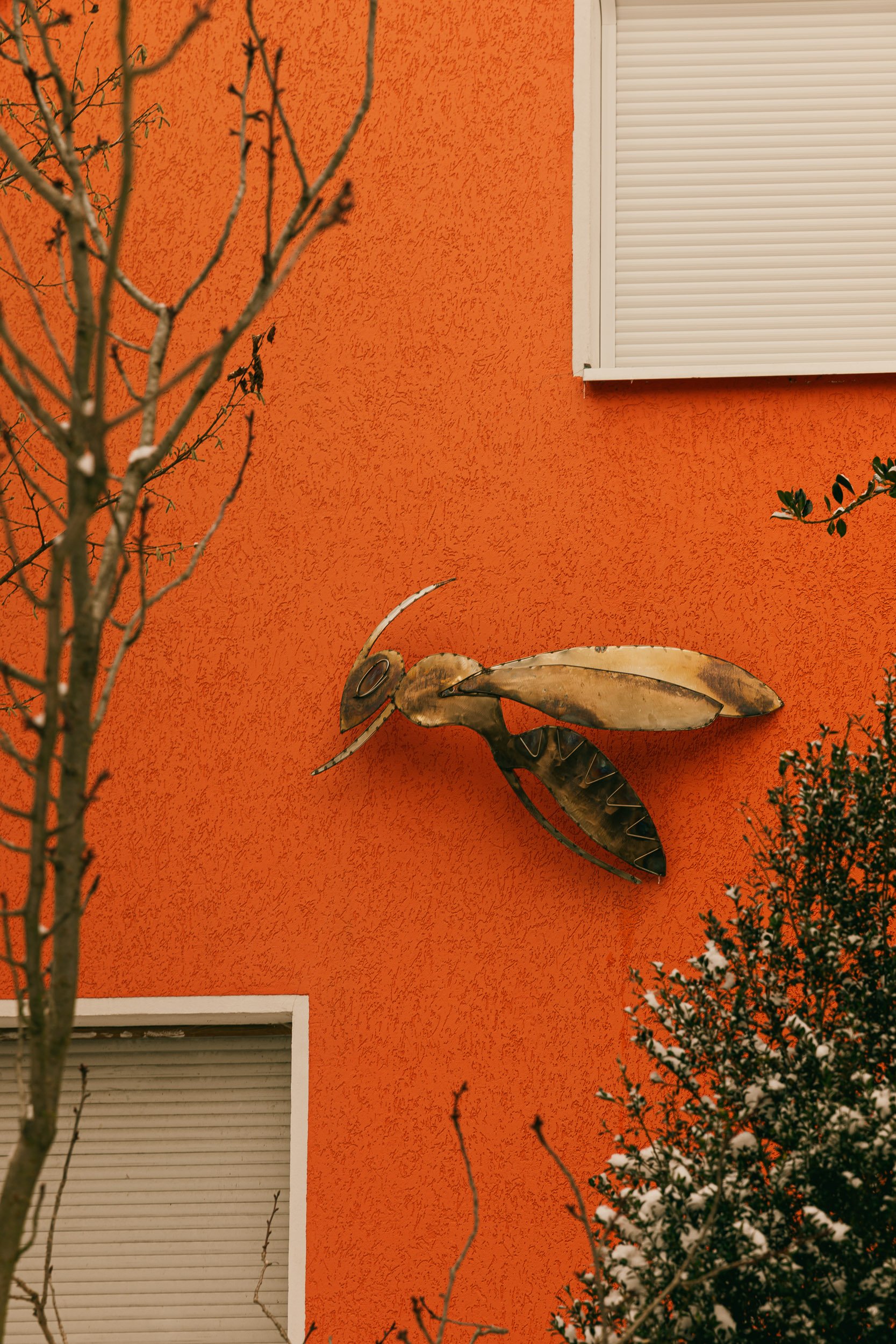How the beekeeper Association Reinickendorf-Mitte recreated their activities and the apiary with hybrid digital solutions.
Those of you picturing a dystopian scenario with destructive bee drones from the series Black Mirror when hearing about bees and digitalisation, should have a conversation with Melanie von Orlow. In her role as first chairperson in the Beekeepers’ Association Reinickendorf-Mitte she leads one of the largest and oldest beekeepers’ associations in Berlin. She is long aware of the advantages of digital tools in beekeeping.
However, this has not always been the case. When Melanie von Orlow took over the presidency six years ago, most processes within the Association were handled by analogue means – communication meant writing letters. At the same time, the Association experienced a record growth as beekeeping became in vogue, especially in big cities, and it keeps growing until today.
The increase in memberships lead to a huge administrative burden. Back then, the board in charge suggested Melanie von Orlow to initiate the digitalisation process within the Association. In her role as treasurer, she implemented a direct debit scheme for membership fees. This was far from being easy: “I had never created a SEPA before and it took me a while to get everything started. It was a real struggle”, she explains.
After overcoming this hurdle, she realised that she had immensely reduced her workload. All of a sudden, she was no longer sending reminders, she only had to request chargebacks including administrative fees from defaulting members from time to time. An active association relies on its volunteers and Melanie von Orlow realised that the great potential of digitalisation lies in reducing their workload, especially because volunteers mostly work for the Association besides their full-time job.
After introducing the direct debit scheme, she created a website for the Association with a password protected members’ area. The advantage of such a page is for members to be able to log in and enter, view and change their personal data independently. Even if this is a huge relief, it still causes some trouble. Especially elderly members do not have an e-mail address. However, this is required to create an account in the members’ area. Melanie von Orlow has a pragmatic approach in working around this issue: She uses the Association’s e-mail addresses and installs automatic replies to explain that the person contacted is not available. She is convinced that sooner or later, this problem will solve itself.
Melanie von Orlow has plenty of ideas to shape more modern and innovative forms of collaboration within the Association. On the website, for example, she created an interactive map of beehives where visitors can see which hives are close to them. Beekeepers can activate a “participate” button which invites other beekeepers to visit and share the work.
Additionally, Melanie von Orlow takes care of acquiring new members. Beekeeping is a hobby which can be carried out alone, so the question comes up: “Why should people join an association?” Melanie von Orlow follows two strategies to attract new members, namely technical information and infrastructure. This means she invites experts for talks and provides a centrifuge for the honey production and the rendering of the beeswax on site. She is planning to provide access to the centrifuge to members who completed a training via a smart lock system. This works entirely remotely, because it is:
“usually difficult to find a volunteer to take care of the keys”.
Especially now, during the pandemic, digital solutions turn out to be a good support for the analogue hobby of beekeeping. When in spring 2020 it was clear that beginners‘ courses could no longer take place, Melanie von Orlow participated in the digitalisation campaign of the German foundation Engagement und Ehrenamt and successfully applied for funding. She was able to conceive a new beginners‘ course and buy a tour guide system with these funds. Now, the beehives used for educational purposes are located at a safe distance from each other and participants receive instructions over their headphones. Melanie von Orlow considers beekeeping as the perfect hobby during the pandemic – you can do it on your own and outside.
 Image: Daniel Lucas Faró
Image: Daniel Lucas Faró Image: Daniel Lucas Faró
Image: Daniel Lucas Faró
The only missing aspect is the community within the Association. Melanie von Orlow found hybrid solutions since analogue meetings – usually taking place each Tuesday – are on hold right now: If the weather allows it, members can meet on Saturday afternoons at the Association’s outside area and take care of the bees at a safe distance from each other. She also organises video conferences while meetings have to take place virtually.
Only this year’s general assembly is still causing her a headache. She is still figuring out how to hold a secure vote during the virtual event. Melanie von Orlow is well-informed about data protection; she keeps up with current information and asks the NABU for help, where she works full-time. However, she has not found the right tool for a secure vote just yet.
“After all, we are well-positioned here in Berlin when it comes to digitalisation”,
says Melanie von Orlow with satisfaction. She is aware that this is mostly her doing: She is the energetic driver for this digital change. Still, volunteers have generally improved their digital know-how over the last years. Nevertheless, Melanie von Orlow would like members to show more interest for digital issues, because at some point she needs a successor.